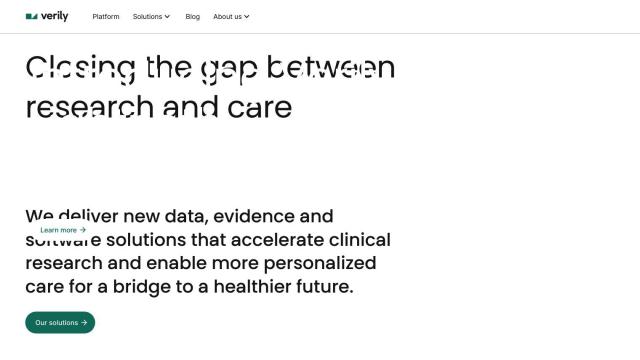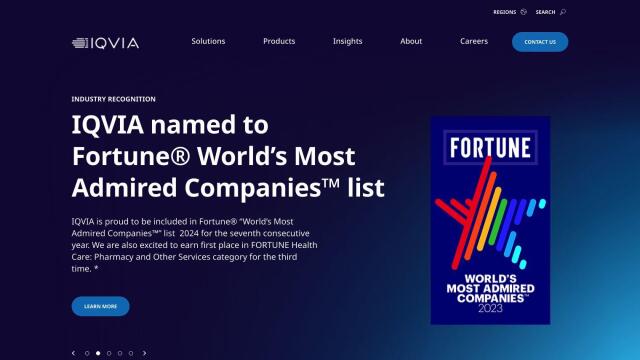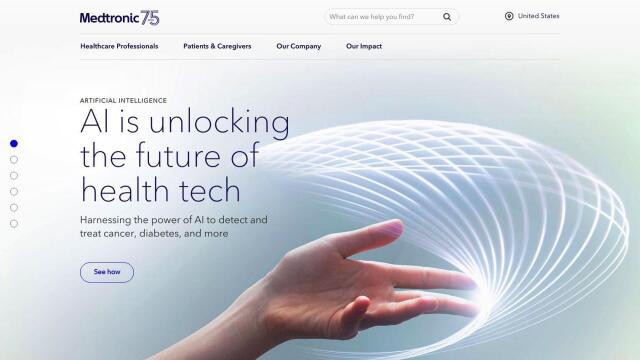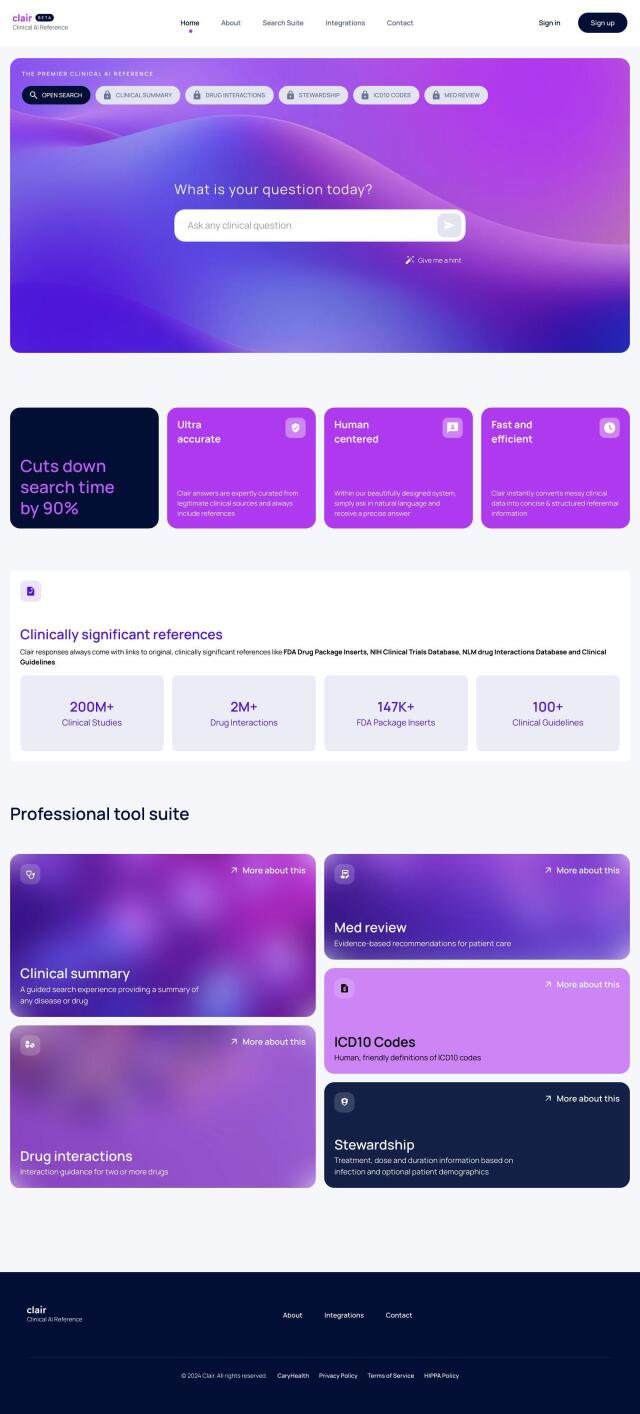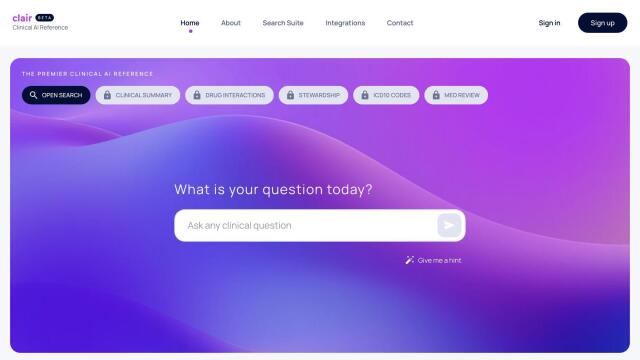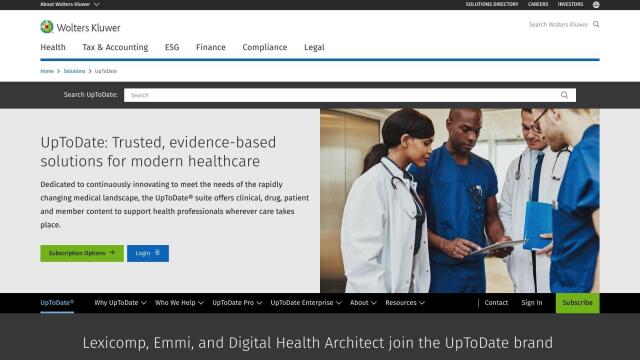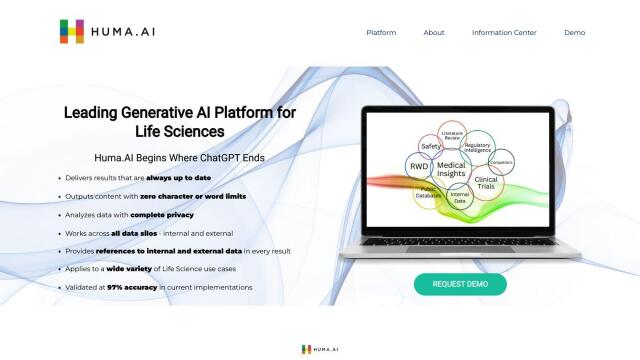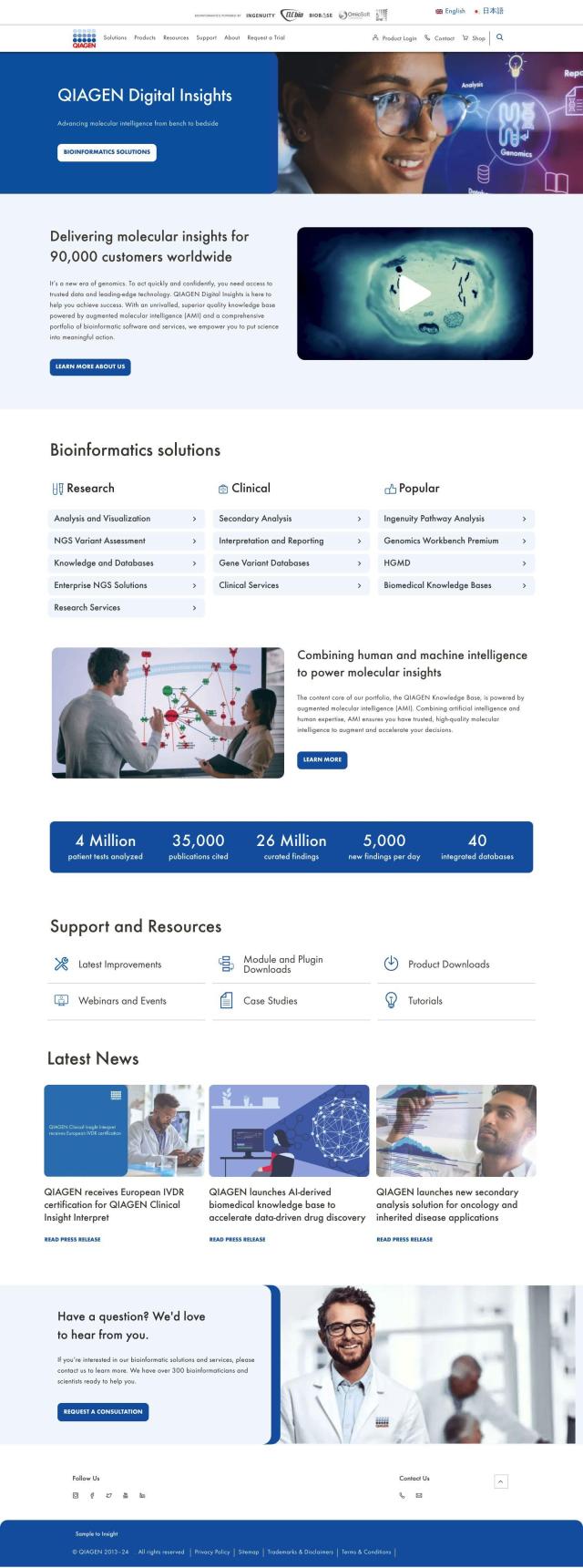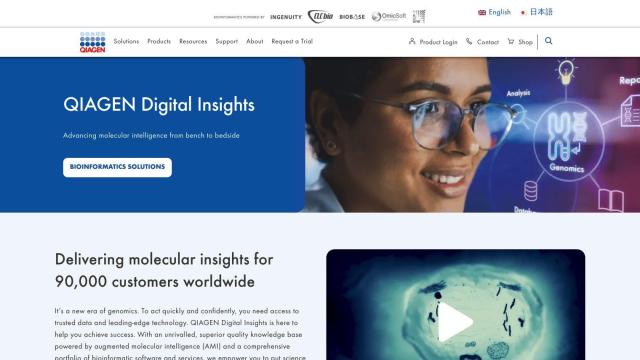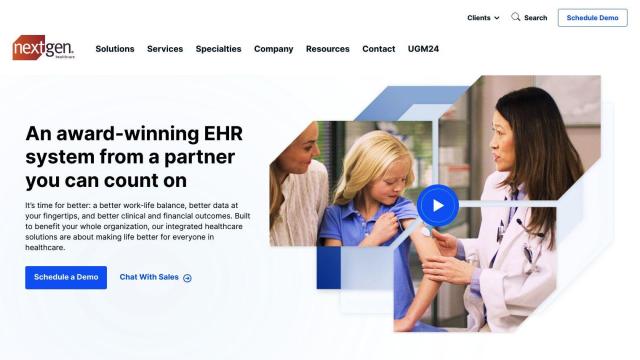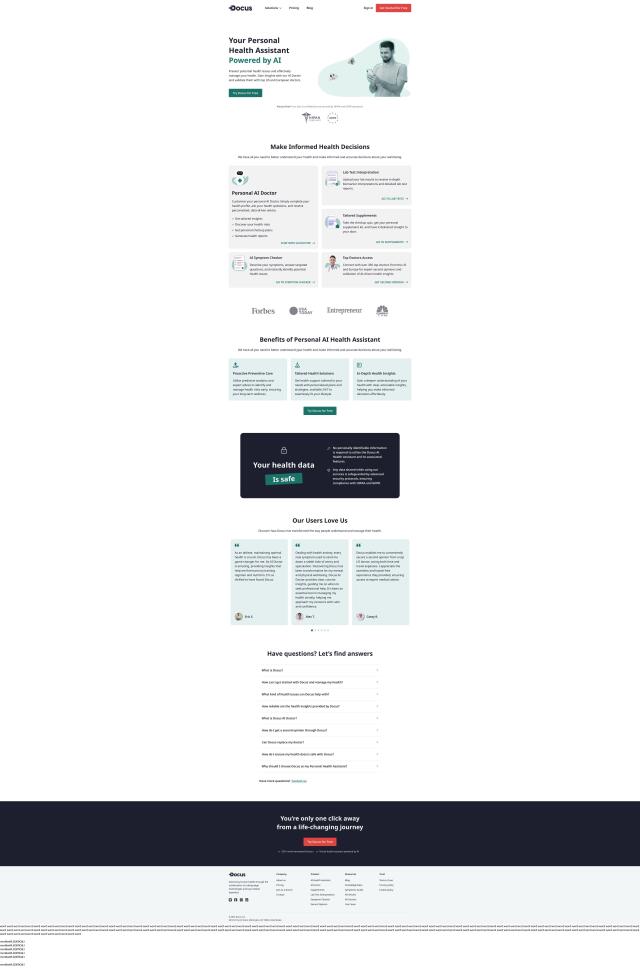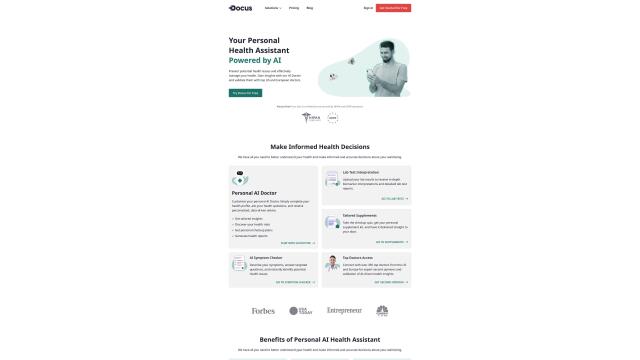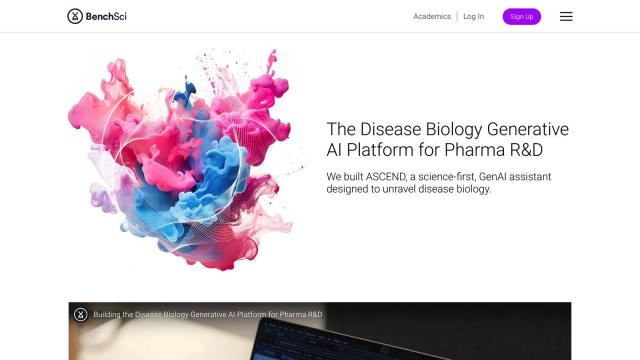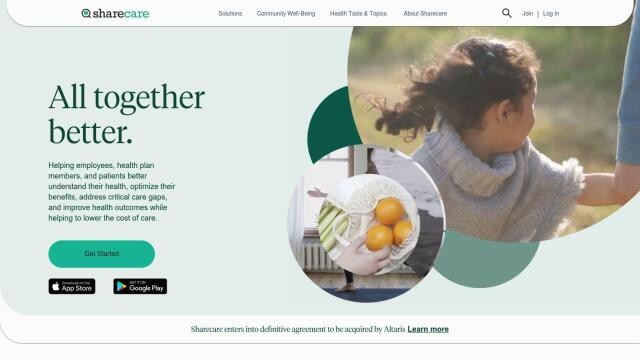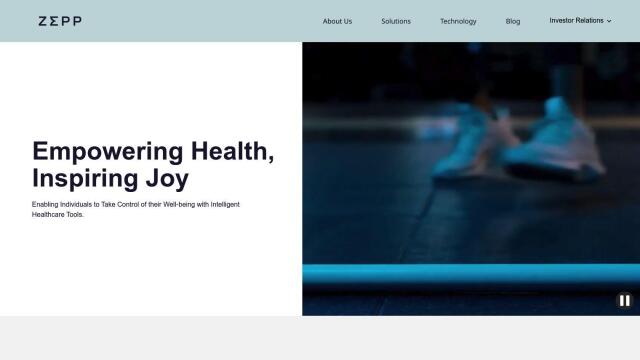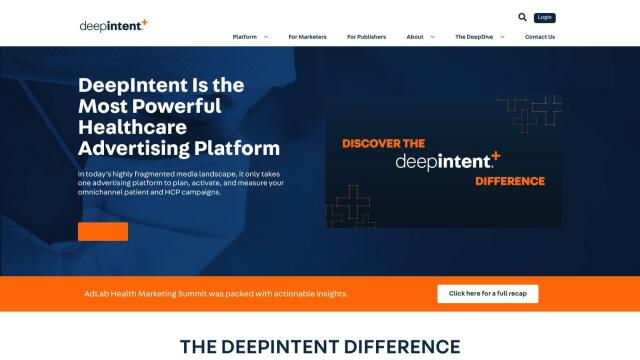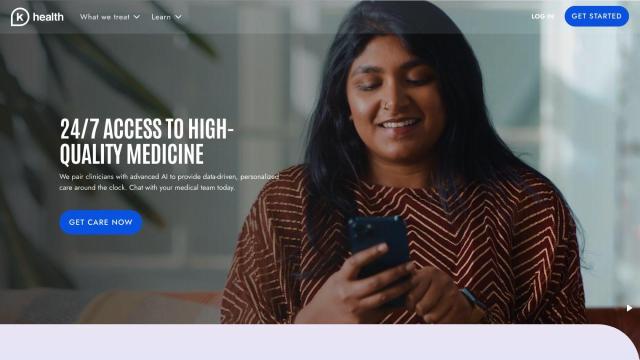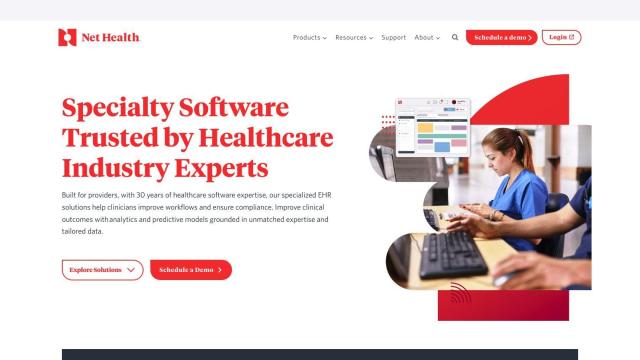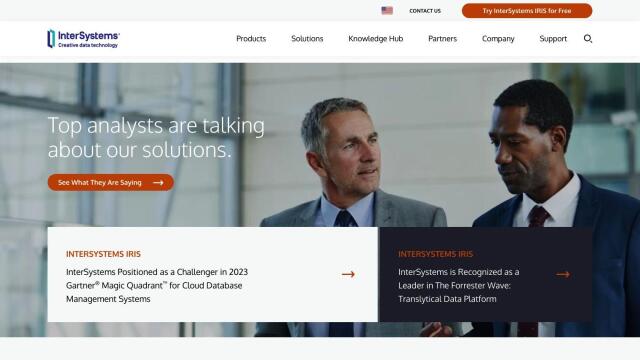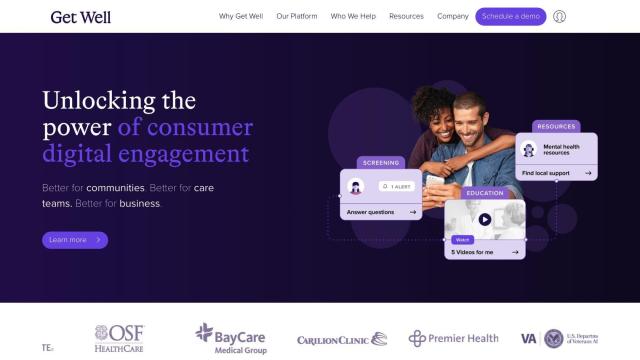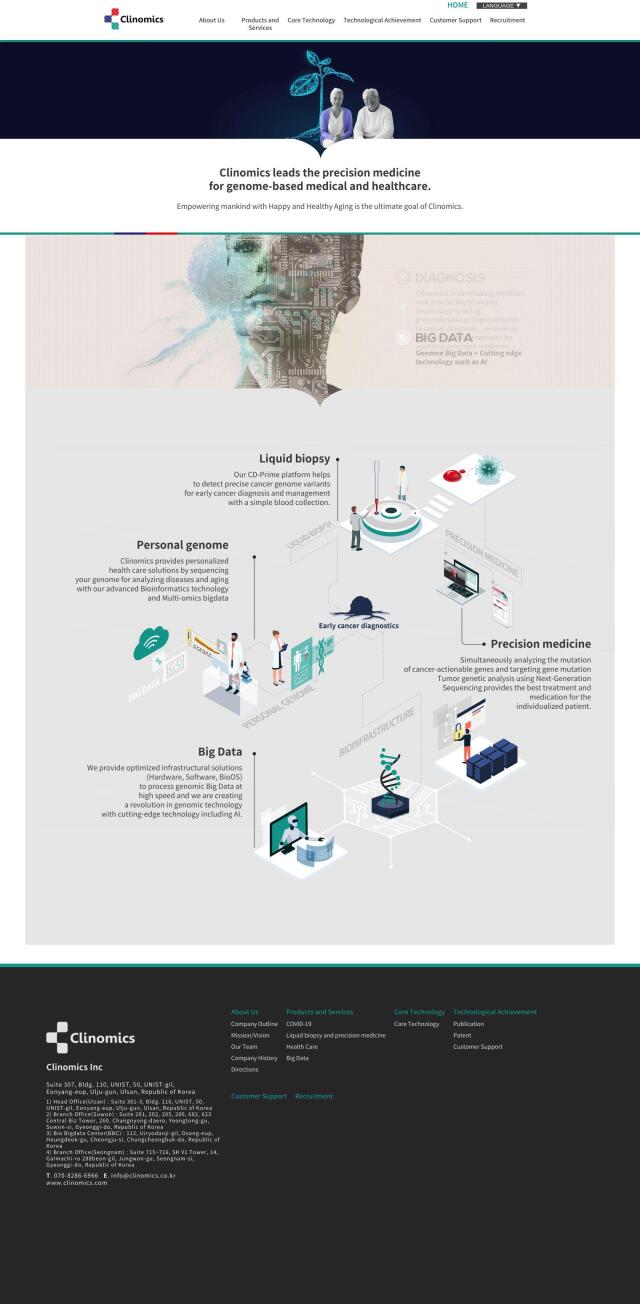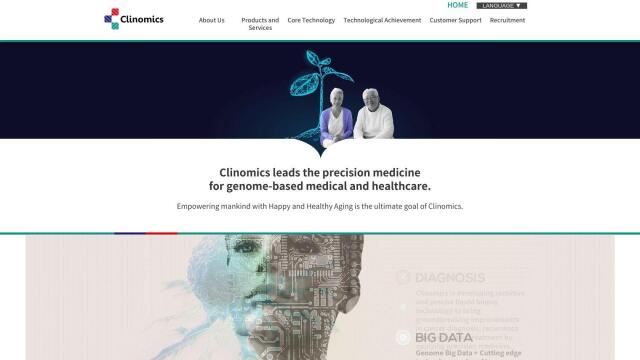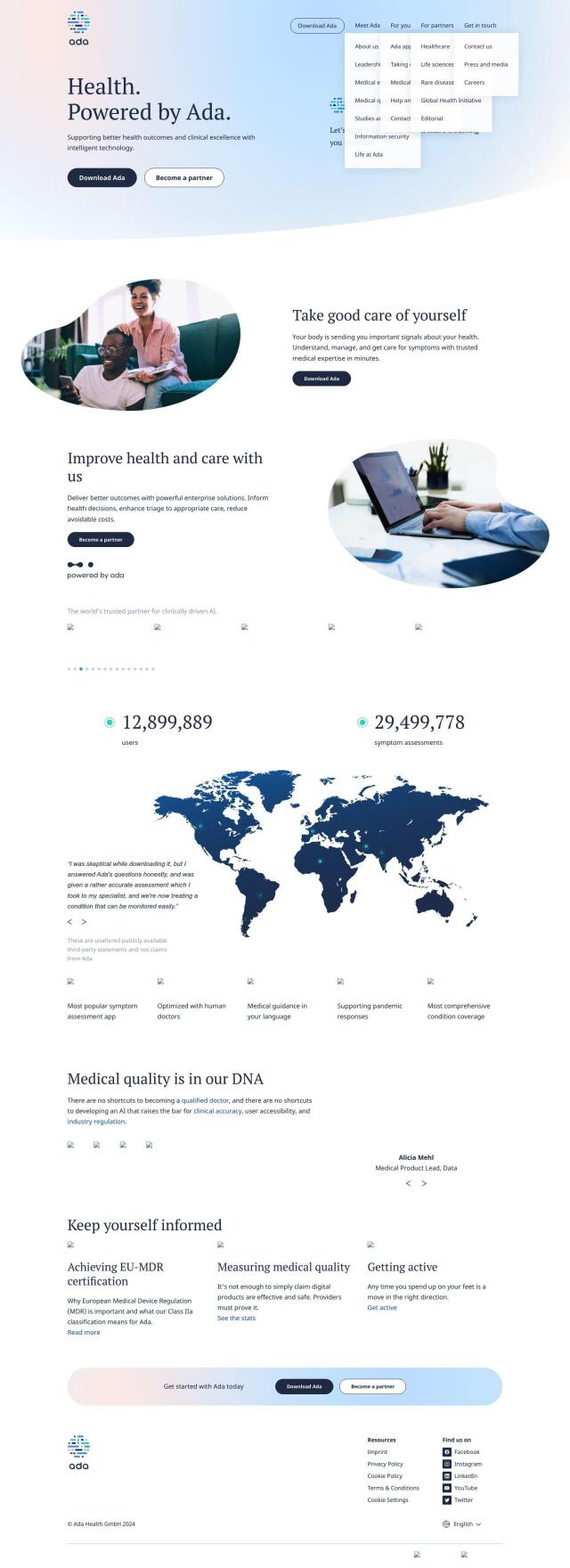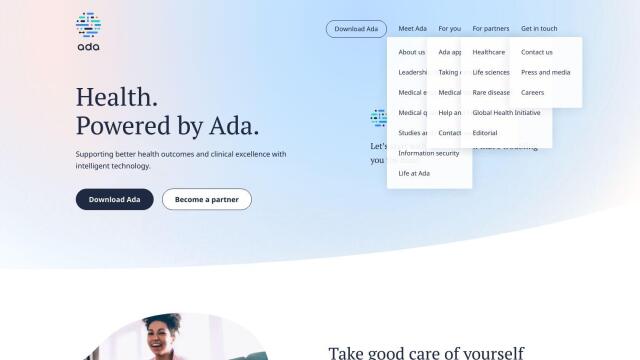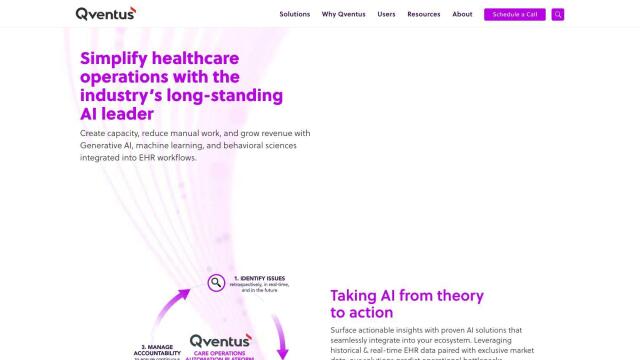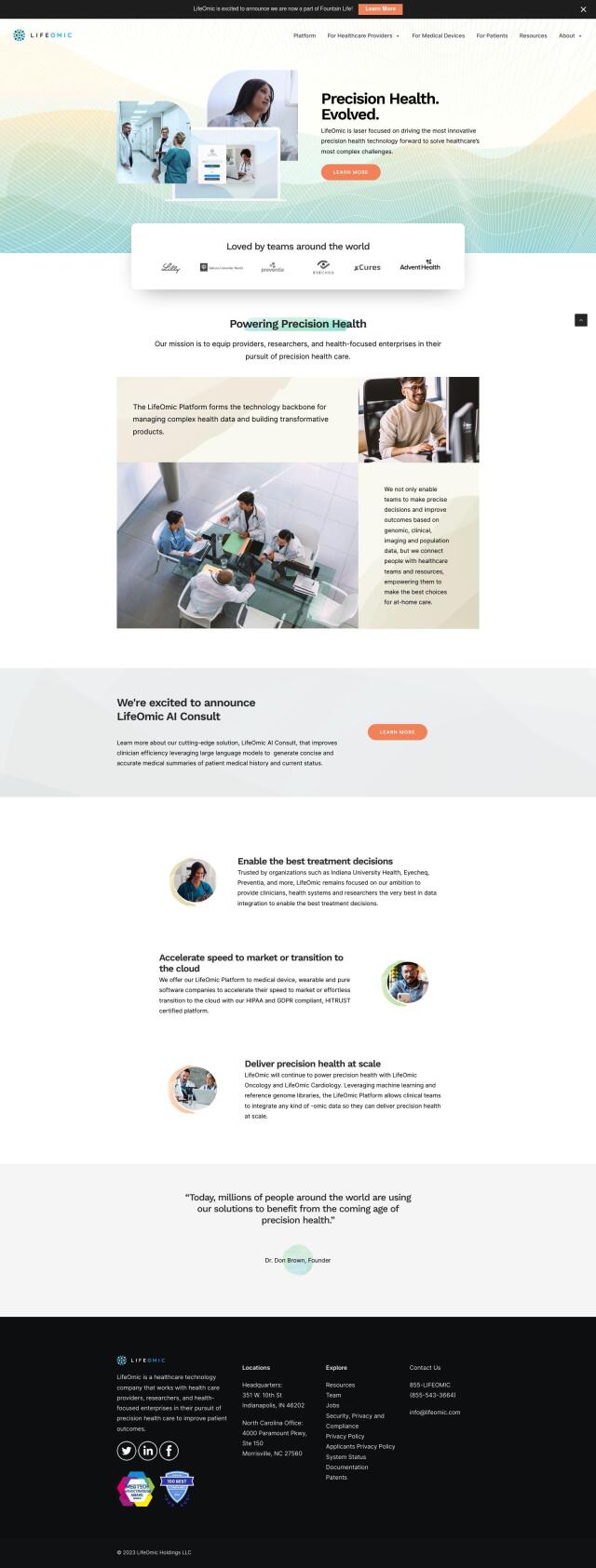
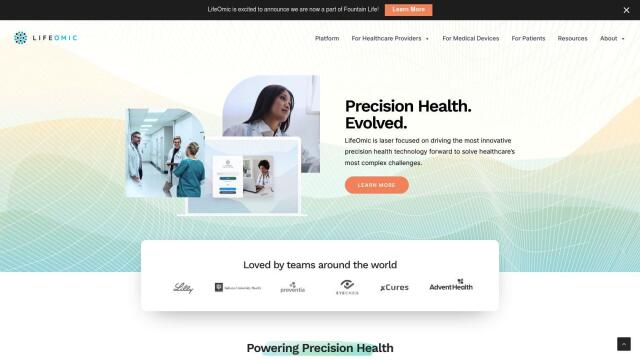
LifeOmic
If you're looking for another Verily option, LifeOmic is a good option. LifeOmic aggregates genomic, clinical, imaging and population data to help doctors make decisions. It offers tools like LifeOmic AI Consult, which generates a quick summary of a patient's health issues, and LifeOmic Oncology and Cardiology, which uses machine learning for precision health. It also offers patient engagement and health plan compliance tools, so it's good for health care providers and researchers, too.

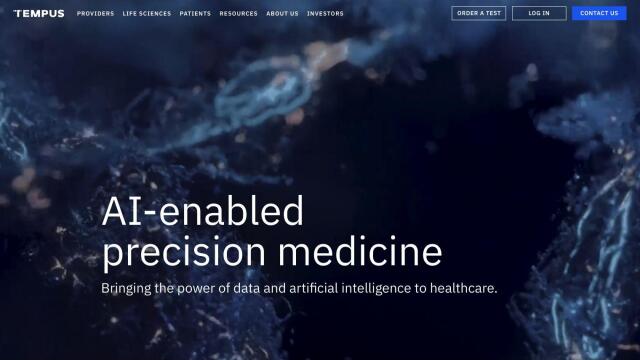
Tempus
Another good option is Tempus, which is geared for precision medicine for cancer treatment. Tempus offers AI-based insights to health care providers, life sciences companies and patients. Its tools include a clinical assistant, care gap identifier and multimodal real-world data analysis. More than 65% of US Academic Medical Centers and 95% of the top 20 pharma oncology companies work with Tempus, so it's a powerful tool for developing personalized therapeutic opportunities and predicting patient-specific drug response.

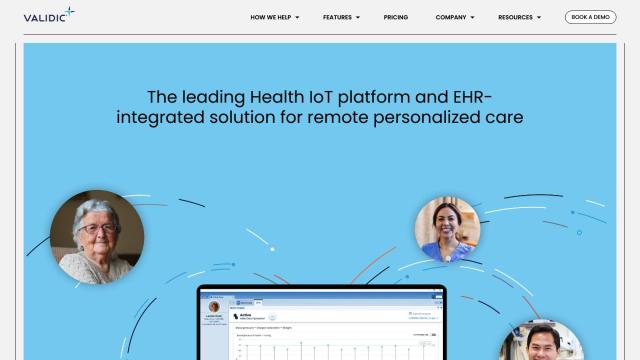
Validic
If you want a more general-purpose health IoT platform, check out Validic. Validic links a wide variety of health devices and apps to generate insights from personal health data. Its tools include EHR integration within existing systems like Epic or Cerner, remote patient monitoring and active alerting. The company is geared to help population health programs and streamline clinical workflows to improve patient outcomes and lower hospital readmissions.

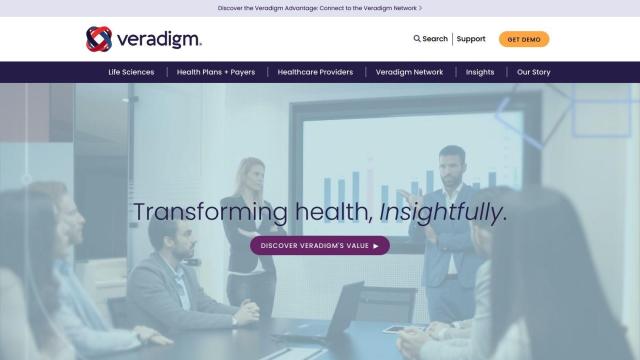
Veradigm
Veradigm also has a range of health care options that could be a good fit. Veradigm has access to more than 180 million patient records through its Real-World Data solutions and Real-World Evidence teams. Its other options include advanced quality and analytics solutions, practice management tools and patient engagement platforms. Veradigm is designed to improve care outcomes, increase patient engagement and reduce costs by connecting health-tech solutions with physicians and patients.

